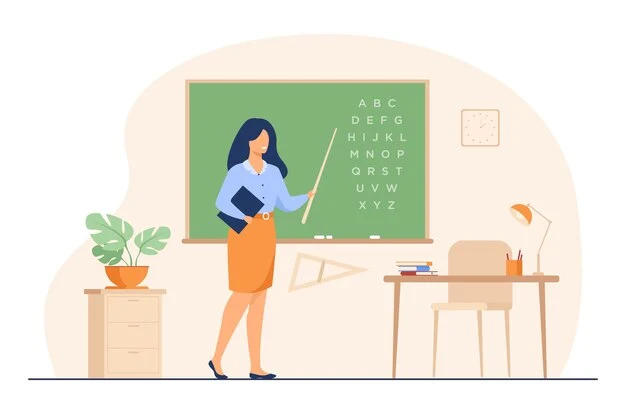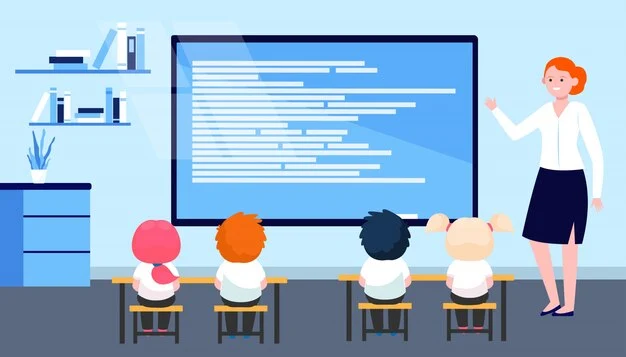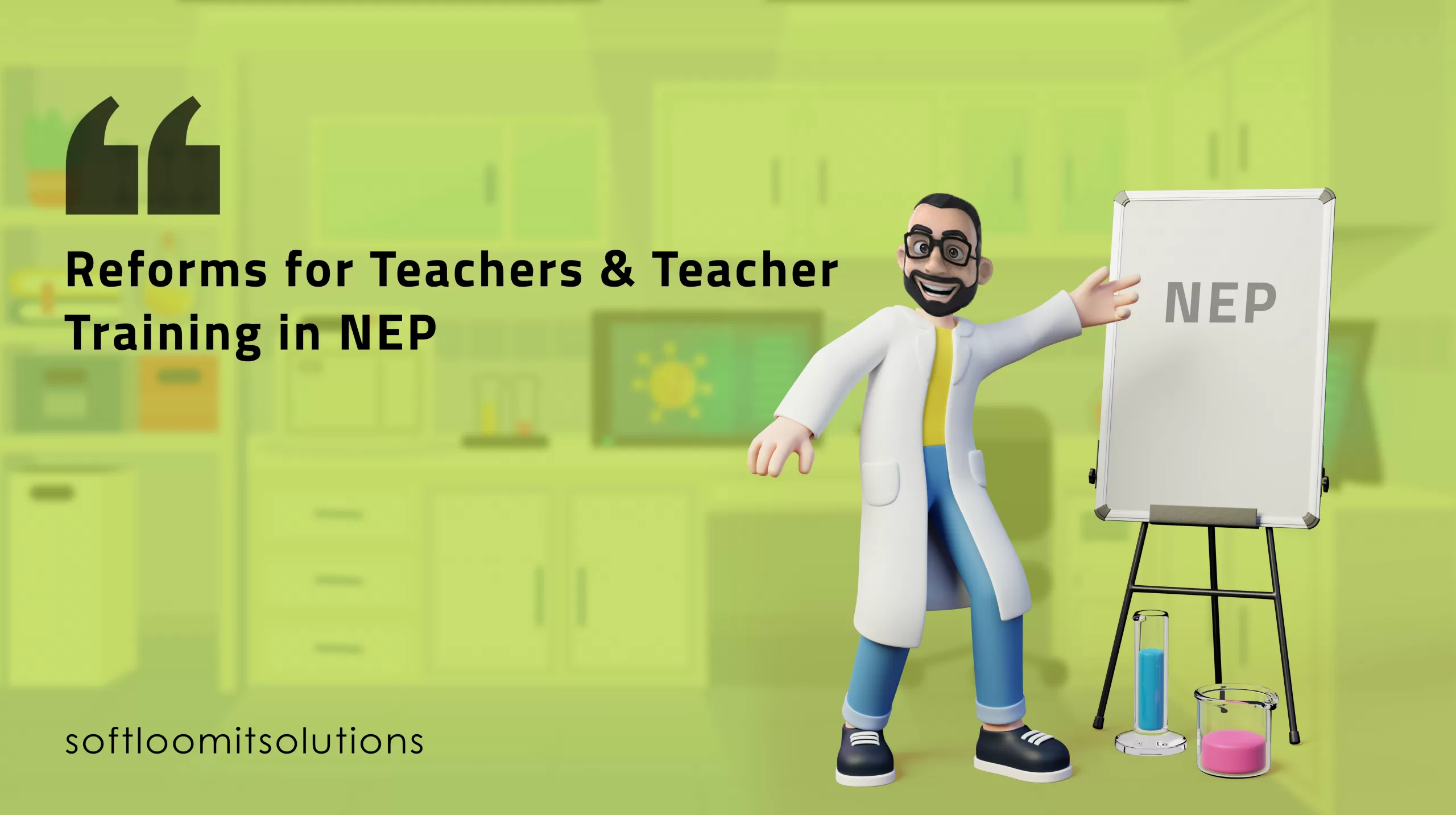The National Education Policy (NEP) of 2020 is a notable accomplishment in the field of education policy-making.This article delves into the potential and reach of the NEP system, particularly regarding teachers and teacher education programs.

Introduction to the NEP System
The NEP system is designed to provide essential value to all levels of education, from schools to higher education. It follows an academic reformation model that aims to improve the existing education system to higher levels. The system is developed and published to provide value to all aspects of education and academic branches. This includes ensuring quality, affordability, equity, access, and accountability.
Aim of NEP System
The NEP system aims to improve teacher training, reform the examination process, provide early childhood care, and update educational regulatory policies. Additionally, it seeks to prioritize public investment in education, establish a National Education Commission (NEC), utilize technology effectively, and offer vocational and adult education programs.
Salient Features of the NEP System
The NEP system provides several essential features that help shape the overall policy. These include early childhood care, the Right to Education Act provisions, curriculum framework, different exams and tests, and education governance. The system consists of the National Research Foundation, higher education institutions, education financing, the three-language formula, and vocational/adult courses. These features add significant value to the NEP system.
Vision of NEP
NEP’s vision statement promotes a thoughtful learning process that helps learners develop a spiritual, intellectual, and practical model for acquiring skills, knowledge, values, and responsible commitments. It encourages students to actively contribute to human rights, sustainable development, and better educational standards. Additionally, NEP aims to increase GER levels to 100% in primary schooling and 50% in higher education levels by 2030.
Encouraging 21st-Century Skills in the Classroom
An appealing feature of NEP 2020 is its ability to provide students with new classroom skills that align with 21st-century lifestyles and careers. Here are the essential skills you should acquire to enhance your personal and career growth, as the NEP system guidelines recommended.
Digital Literacy
In today’s world, being digitally literate is essential. It involves actively using digital platforms and portals to seek, communicate, and understand information on various topics. A firm grasp of digital skills is crucial for individuals to thrive in the modern age.
Problem-Solving
Strong problem-solving skills have always been crucial for individuals to succeed in their respective fields. This remains true today, as problem-solving and thinking critically is a key components of analytical reasoning and observation.
Communication
One crucial skill that NEP encourages is communication. Being able to express your ideas and concepts clearly and efficiently to both people and your surroundings is invaluable. Combining contact with your interpersonal skills can make you unstoppable in all your endeavours.
Critical Thinking
As previously stated, having strong critical thinking skills is essential for analytical reasoning. Critical thinking involves acquiring knowledge, questioning, problem-solving, exploring different perspectives, and communicating effectively.
Creativity
Creativity is a valuable skill that allows individuals to imagine, create, and accomplish various aspects of life. The NEP system strives to cultivate and encourage creativity in learners based on their unique abilities and talents. It is a prized treasure that enhances one’s potential in many ways.
Health & Fitness
Maintaining good health involves not only physical fitness, but also mental, emotional, and spiritual well-being. It’s important to balance your personal and professional life by incorporating healthy lifestyle habits. This will help you promote an active and positive environment for overall wellness practices.
Social Responsibility
In today’s world, it is vital to be mindful of social issues and take responsibility for them. Even companies actively promote Corporate Social Responsibility (CSR) as a business strategy.
Ethics
Demonstrating moral values in life is essential, but studying ethics as a subject can make a significant difference. It can improve social interactions and equip you with practical and adaptable solutions for personal and societal issues when needed.
Scientific Temper
A scientific temper is a valuable skill involving logical, rational, and scientific thinking. It allows individuals to examine factual data and process information before drawing conclusions and making inferences. This skill is often overlooked but essential for making informed decisions.
Collaboration
When a person has strong collaboration skills and effective communication and interpersonal abilities, they can work well as part of a team. This ensures that everyone coordinates their efforts and grows together while accomplishing their tasks.
Impact of NEP on Teachers
This article focuses on the impact of the National Educational Policy (NEP) on teachers. Teachers play a vital role in shaping academic systems, curriculums, and the lives and careers of students. NEP aims to ensure the best teachers are available and their contributions to the education system are recognized. The impact of NEP on teachers begins with training opportunities and continues with integrating that training into the education system.
Teachers and Teacher Education NEP

The NEP system devised in 2020 recognizes the importance of teachers. The inclusion of teacher education in NEP is in response to the poor conditions in areas where teachers are segmented. These problems include inadequate education, training, recruitment, teaching quality, motivation, service conditions, and systemic reforms.
What are National Professional Standards for Teachers
The National Professional Standards for Teachers (NPST) are closely linked to the teaching profession and its standards. NPST plays a vital role in identifying factors influencing a teacher’s career management, professional growth, salary increases, performance evaluations, and teaching audit reports. Meanwhile, the National Council of Educational Research & Training (NCERT) oversees the NEP teacher training program and serves as a driving force behind the continuous advancement of the teaching profession. The program includes various sections dedicated to annual ongoing professional development (CPD).
Quality 4-yr Integrated B.Ed. Programme
The Government has taken an active initiative by creating an integrated B.Ed. Program that lasts for four academic years. The National Council for Teacher Education (NCTE) oversees teacher training and promotes the B.A. – B.Ed. Scheme, which allows future teachers to reach their full potential. With this integrated model, teachers can obtain two bachelor’s degrees simultaneously, providing them with more exposure and internship-level training experience before entering the academic system.
Teacher Eligibility Tests (TETs)
Aspiring teachers in India must pass the Teacher Eligibility Test (TET) as a minimum qualification for the teaching profession. This test is widely promoted by government schools and effectively assists teachers in launching their careers. The CTET is the most challenging eligibility test to pass from an examination perspective. Passing the TET opens up job opportunities in both Government and private institutions.
Sharing of Teachers Across Schools
NEP 2020 promotes the idea of sharing teachers among schools & academic institutions to help deal with matter like the shortage of teachers. It happens mostly for profiles like arts, music, dance, crafts, traditional courses, etc.
NEP 2020 policy assign sufficient space for master teacher to join as part of the eminent personalities’ list whoever can take over a course.
Aim of NEP to Support & Nurture Teachers

The NEP has the potential to provide excellent support and encouragement to teachers starting from the very beginning. The main focus of this section is to empower and assist teachers through various platforms and activities. Consistent support and nurturing activities will help the impact of teacher training reach even the most remote areas. The training program is comprised of different components such as preparation, recruitment, classroom activities, and professional development programs.
Preparation
The process of planning, preparing, and executing for NEP 2020 begins at the ground level and empowers the professional staff in the division. They will have to learn about many concerns and challenges and develop ideal solution proposals as part of the teacher training programs.
Recruitment
Based on the guidelines outlined in the NEP, teachers must have at least four years of education under the integrated B.Ed. scheme to be recruited. Passing Teaching Eligibility Tests is crucial for maximizing your potential and increasing your likelihood of being hired.
In The Classroom
Teachers play a pivotal role in classroom segments during training and teaching. According to NEP guidelines, they must adhere to various factors and active elements to become role model, teachers and support personnel.
Professional Development
The NEP system aims to enhance teachers’ personal and professional growth by providing support for their development potential. Essential elements that contribute to the empowerment of the teaching profession are quality control, responsibility, and the level of respect, dignity, and autonomy teachers can attain throughout their careers.
Continuous Professional Development & Improving Standards
Continuous Professional Development (CPD) is an essential component of the NEP system. It enables teachers to receive training and enhance their professional capabilities, resulting in a more engaging role in improving the speciality services associated with the general development process.
Initiatives for Capacity Building of Teachers
The NEP system outlines several initiatives to enhance the skills of teachers. The main goal of these initiatives is to foster a collaborative learning culture. The methods used for capacity building are interactive and involve the participation of all stakeholders. These initiatives aim to identify the strengths and weaknesses of individual teachers and provide systematic support to address these areas. The initiatives include training sessions, assessments, capacity development responses, and stakeholder engagement.
Challenges Faced by Teachers in NEP System
Teachers in the NEP system face several challenges, including difficulty grasping the entire syllabus, especially for beginner-level teachers. Another challenge is the problem of teacher selection. Teachers may also need a better curriculum and more teacher training programs. Improper use of science and technology could also harm the training system. Teachers may feel isolated, lack control, and miss out on co-curricular activities and developing life skills.
Additionally, there needs to be more clarity on social issues and core values due to globalization. Sticking to traditional teaching methods alone could also pose a challenge. Educational institutional reforms are another issue that teachers face. A lack of creative potential could hurt active training programs, and there may be issues with evaluation, supervision, & adequate facilities. In some cases, lack of funds or legal troubles could create obstacles. Adapting to changing academic and educational trends could be challenging, and more than textbook exposure may be needed for modern education systems. Finally, teachers may need help achieving a work-life balance, delegating tasks, undertaking responsibilities, and lacking inspiration.
Benefits of Teachers in the NEP System
The NEP system offers several advantages for teachers, including holistic academic development. It may be challenging, but teachers can teach in their mother tongues, which is a great opportunity. They can also help bridge digital divide in today’s world. The NEP system can improve the relationship between teachers and other parts of the education system, particularly students. The Government is accountable for the NEP system, making it reliable. Teachers can play a vital role in reviving and contributing to the future of education in the country. Along with educational institutions, they can contribute to transforming the country’s learning progress.
Conclusion
The NEP teacher training program aims to improve the quality of teaching and benefit candidates. It’s reassuring for educators to know that the program, under NEP 2020, is a continuous process.
The National Education Policy (NEP) has brought about a significant change in the education sector by prioritizing precision and effectiveness. As part of this transformation, college ERP software has become essential in simplifying the work of educators and improving administrative procedures. If you want to make the most of your academic journey in line with NEP, please don’t hesitate to reach out to us for any questions about College ERP software. We are here to help you enhance your educational experience.






